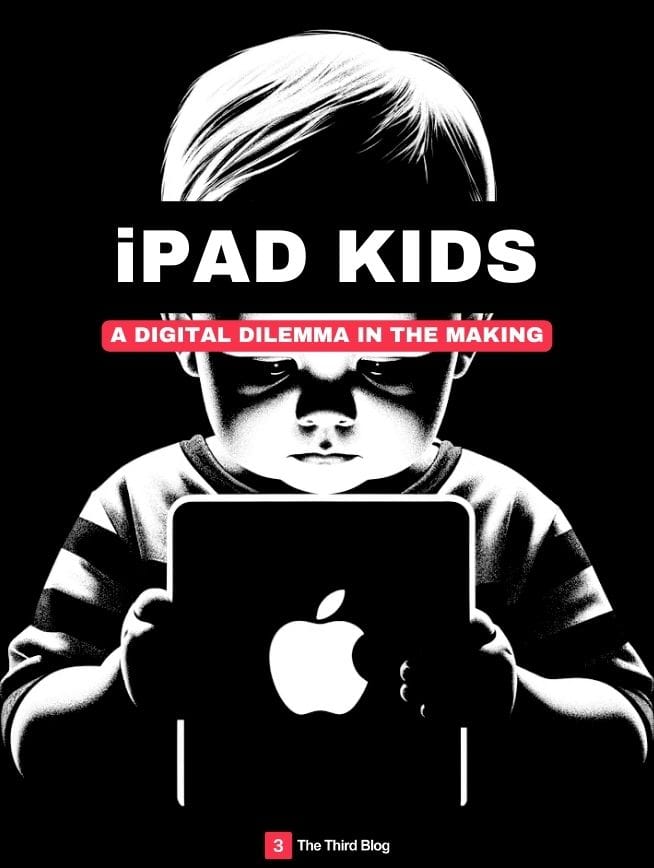iPad Kids: A Digital Dilemma in the Making
Exploring the rise of 'iPad Kids', the article delves into the developmental, behavioral, and familial impacts of excessive screen time on children, emphasizing the need for a balanced approach to digital and real-world experiences.

I recently watched a video on YouTube that blew my mind. 'The Disturbing Rise of iPad Kids'. Rare for YouTube, it made me think. As an adult, I already experience the addiction and allure of anything digital and rarely thought of the impact to those much younger.
I grew up in an age where we spent hours playing in the woods and socialising with other kids. This doesn't happen anymore. Imagine a life dominated by the digital world. This is now a reality.
What is an iPad Kid? (ChatGPT)
An "iPad kid" typically refers to a child who spends a significant amount of time using an iPad or similar tablet device. This term often implies a level of concern about the child's engagement with technology, particularly regarding the potential impact on their development, behavior, and social skills. The concept of "iPad kids" has become a topic of discussion among parents, educators, and health professionals, who debate the effects of screen time and digital media on children's physical and mental well-being. The term suggests a generational shift where digital devices are a major part of children's lives from a very young age.
Don't get me wrong. I love technology...but this alternate perspective is mind-blowing. Check it out:
The transformation of children into digital natives has been swift and profound. Tablets and smartphones, once hailed as educational tools, have now blurred the lines between learning and play, reality and virtuality. But as screens become the constant companions of our youngest generation, a troubling question arises: What are the implications of this digital immersion?
Research sheds light on this issue, revealing a dual-edged sword. On one side, technology can be a potent educational tool, enhancing learning experiences with interactive apps and global connectivity. However, on the other, excessive screen time is linked to developmental delays, behavioral issues, and disrupted family dynamics.
"Gen Alpha – meaning anyone born between 2010 and 2024 – are defined and utterly subsumed by the digital world." - VICE, Eloise Hendy
One of the most pressing concerns is the impact on developmental milestones. Studies indicate that children overly reliant on screens may experience delays in language development, shorter attention spans, and difficulties in emotional regulation. The American Academy of Pediatrics recommends limited screen time for children, emphasizing the importance of interactive, unstructured playtime for healthy development.
Behavioural issues also come to the forefront. Parents and teachers report increased irritability, reduced patience, and a noticeable decline in physical activity among children who spend significant time on digital devices. The sedentary nature of screen time is at odds with the essential need for physical movement and exploration in a child's life.
The influence of screens extends beyond the individual child, reshaping family dynamics and interactions. Meals, once times for family conversations, are now often silent, with each member absorbed in their own digital world. This shift raises concerns about the long-term effects on communication skills and emotional bonding within families.
In navigating this digital landscape, parents face the task of setting boundaries. This can include designated 'screen-free' times, encouraging alternative hobbies like reading, sports, and arts, and using technology together as a family to promote shared experiences and learning. Who knows.
In conclusion, the rise of 'iPad Kids' presents a modern conundrum. While technology offers unprecedented opportunities for learning and growth, its overuse poses significant risks.
It is up to parents, educators, and society as a whole to guide this generation in balancing the digital and physical worlds, ensuring that the screens that open new horizons do not become barriers to the essential experiences of childhood.
Some food for thought.
Thanks for reading.
T3B

